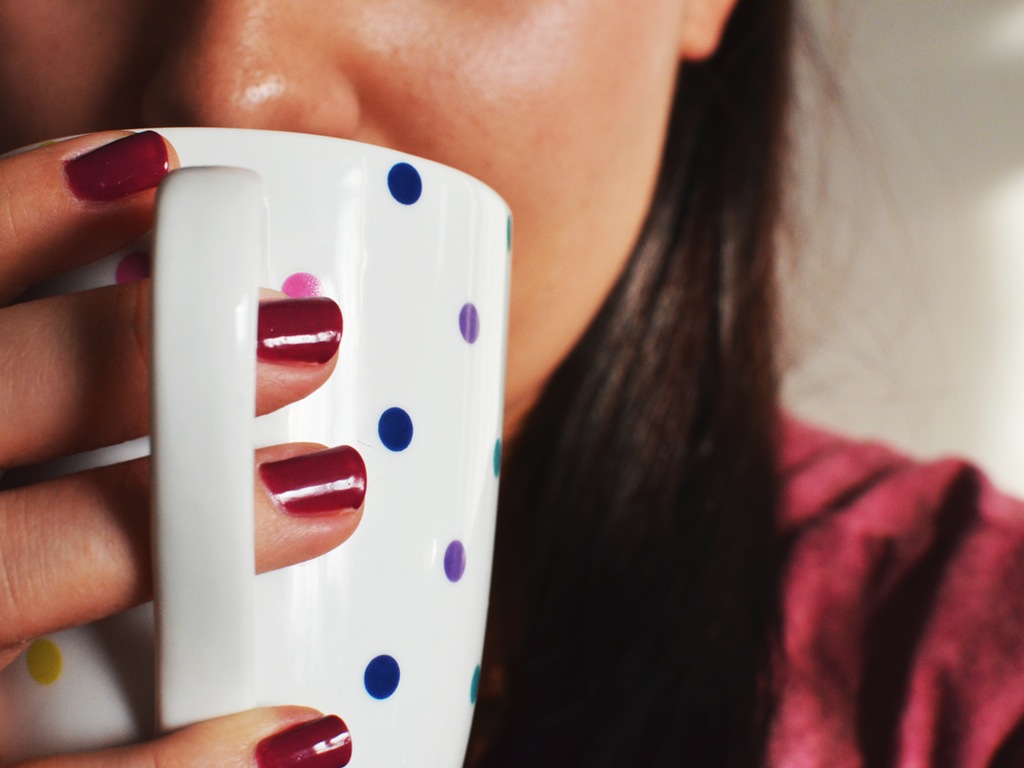4 Mins Read
If there’s one resolution we all need to make, it’s to take better care of ourselves. Preventative healthcare, whereby you work on living a healthier life before you get sick is the way of the future. Ayurveda, short for Ayurvedic medicine, is a three thousand year-old healing system packed with wellbeing wisdom, including many daily self-care rituals known as dinarcharya that can make a huge difference to your quality of life. You don’t have to do all the ones listed below. Just pick a few, take some morning me-time and watch your physical and emotional health do a 360.
Kavala Dharna – Oil Pulling
We’ve already covered the bevy of benefits that daily oil pulling offers, believe in oil pulling, but here’s a quick overview of the highlights: Kaval dharna is a daily Ayurvedic ritual that involves swishing a spoon of oil (usually coconut) in your mouth for up to 20 minutes in order to clean your teeth, draw out toxins, improve your oral health and generally detox your body. Our tips: 1) unrefined coconut oil and sesame oil are our fave choices; 2) brush your teeth after oil pulling; 3) spit out the oil in the toilet since it’s full of toxins; 4) when you spit, the oil should be foggy- if it’s still clear, you didn’t do it long enough.
Haldi Ka Doodh – Golden Milk
Turmeric was 2016’s superfood of the year according to Google Food Trends but the truth is, Ayurveda has known about the rhizome’s super powers for millennia. Sipping a mug of Golden Milk is a breakfast must in most Indian homes, where doting mums know that turmeric, a potent cousin of the ginger root, is the ultimate immune system booster. Find out more about why turmeric is so good for you and how to make this nourishing drink here.
Garshana – Dry Brushing
The practice of using a dry brush to massage your body is a staple in the Ayurvedic #selfcare arsenal and is an incredibly energizing way to start the day. Before bathing, brush your skin in circular motion in the direction of your heart to stimulate your lymphatic system, speed up toxin release, boost blood circulation and refresh the skin. Our tips: 1) make sure you are naked; 2) avoid any broken or injured skin; 3) get yourself a body brush with a long handle so you can reach all over your body; 4) get a natural bristle brush- a synthetic brush won’t have the same therapeutic effect). Get.Give has a nice one.
Sadhana – Spiritual Practice Meditation
There are varying English translations for ‘sadhana, ‘ but most agree that the concept of sadhana involves a spiritual practice in general, and meditation specifically. We like to think of it as the practice of daily meditation, aka taking a time out from the world, from screens, from talking, from all other forms of stimuli and turning inwards, connecting with your inner self and with the energy in the universe. The form your sadhana takes varies from person to person. For some it’s yoga (try Surya Namaskar, the sun salutation routine), for others it’s mindfulness, for others still it’s chanting. The point is to set a time every day, for a set number of minutes (or hours if you want to) and focus on making this connection without any other distractions.
Jala Neti – Nasal Cleansing
Using a neti pot to clean out your nasal passage with a salt-water solution is another Ayurvedic tradition that promotes your body’s wellbeing. Not only are you flushing out excess mucus, dust, pollen and other debris from your nose, you are also clearing one of your main breathing pathways for increased oxygen intake and better overall breathing. This practice is especially helpful to those who suffer from allergies, asthma, chronic sinusitis and frequent colds. You can find a neti pot online here and step-by-step instructions on the process here.
Abhyanga – Self-Massage
Ok so you’ve dry body-brushed, swished some oil, cleaned out your nose. What’s next? Post-shower, it’s time for your daily abhyanga, the practice of self-massage using warm oil (use a base of almond, apricot or coconut oil and add a few drops of your favorite essential oil). Of all our five senses, our sense of touch is the least stimulated. Most of us lead increasingly lonely, disconnected lives and don’t experience human touch as often as we should. Beyond self-care, abhyanga is the ultimate expression of self-love, a dedicated time for you to focus on your body and enjoy the healing powers of touch. Self-massage also has a myriad of physiological benefits too: it softens, smoothes and moisturizes your skin; decreases stress, promotes circulation and lubricates the joints. Here’s a great abhyanga guide to follow.
Image courtesy of pexels.




